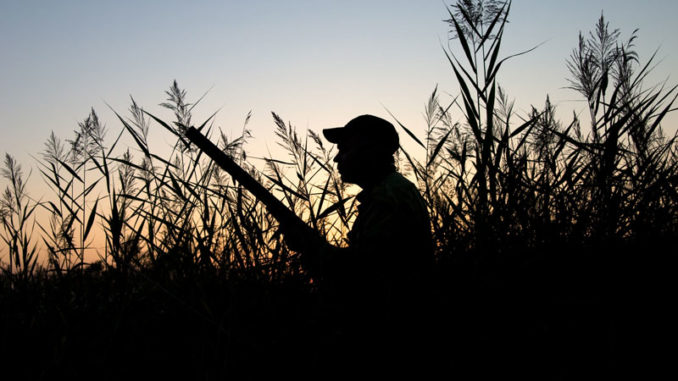
Editor’s Note: This is a guest post from Senator John N. Kennedy.
No one has done more to grow America’s duck population than duck hunters, so why are we ignoring their input when it comes to the hunting season?
In the early 20th century, America was growing, and Americans were building bigger cities. But while our population surged, the number of ducks and other waterfowl in North America dropped to approximately 27 million—or about 10 million less than what it is today. It was American sportsmen and sportswomen who, in the throes of industrialization, recognized the importance of protecting the nation’s wildlife. They were instrumental in conserving duck habitat—our country’s wetlands. Almost a century later, people who enjoy the outdoors are still leading the charge to defend our ducks.
It was a duck hunter who pioneered the Duck Stamp, considered “among the most successful conservation tools ever created.” Hunters must buy this stamp to hunt legally, and 98 percent of Duck Stamp revenues go to wetland conservation. Since the stamp’s inception, its sales have generated more than $950 million for initiatives to protect our wetlands.
These initiatives are sorely needed. The U.S. lost more than one million acres of wetlands between 1985 and 1995, and many more are still at risk. Fortunately, from 1937 to now, hunters have paid upwards of $14 billion in fees that restore and maintain habitats, educate hunters, and introduce new wildlife into appropriate habitats. Over the decades, outdoor nonprofit groups have increased the duck population by compensating farmers to protect wetlands on their property and by defending ducks against predators. They’ve also worked tirelessly to establish new wildlife habitats, including a $1.9 million, 3,600-acre expansion in Louisiana.
One group of hunters has saved 9,500 of North Dakota’s seasonal wetlands each year since 2015. That is a massive investment for a state that has lost 93,500 acres of its wetlands in just 12 years. Another group has conserved at least 14 million acres of duck habitat across North America—that’s about half the size of Louisiana. The elbow grease and innovation worked: North America’s duck population grew by nearly 40 percent from its low point in the 1930s.
Hunters are natural conservationists. They depend on the environment, so they have every incentive to steward the great outdoors faithfully. Unfortunately, the government has responded by imposing unfair limits on their use of America’s wetlands. Many Louisiana hunters believe the duck season is unreasonably and unnaturally short.
The problem isn’t new. Under 1916’s Migratory Bird Treaty, duck hunting season starts Sept. 1 and runs through March 10, but current federal regulations usually cut the season off on Jan. 31—more than a month earlier than it has to end.
This limitation hits Louisiana’s hunters particularly hard, since poor duck hunting seasons have plagued our state over the past few years. Louisianian hunters would like to hunt until March 10 because the early spring may bring better hunting conditions.
In my experience, hunters have valuable on-the-ground insight, and officials should respect their input. They deserve the opportunity to improve their connection to the outdoors and to have their voices heard on when duck hunting season ends.
That’s why Congress should amend the Migratory Bird Treaty Act to allow duck hunting to continue until March 10. This amendment wouldn’t automatically extend the season into March, but it would permit state and federal wildlife management authorities to make that change, if the facts support it. And, significantly, amending the Migratory Bird Treaty Act would give duck hunters a chance to make their case for extending the season.
“In a civilized and cultivated country, wild animals only continue to exist at all when preserved by sportsmen.” President Theodore Roosevelt’s words still ring true—American hunters’ success in guarding and growing the duck population has proven that abundantly. Washington has restricted their access to wetlands for more than a century. It’s time to listen more carefully to their experience as conservationists, and that’s what amending the Migratory Bird Treaty Act would do.


